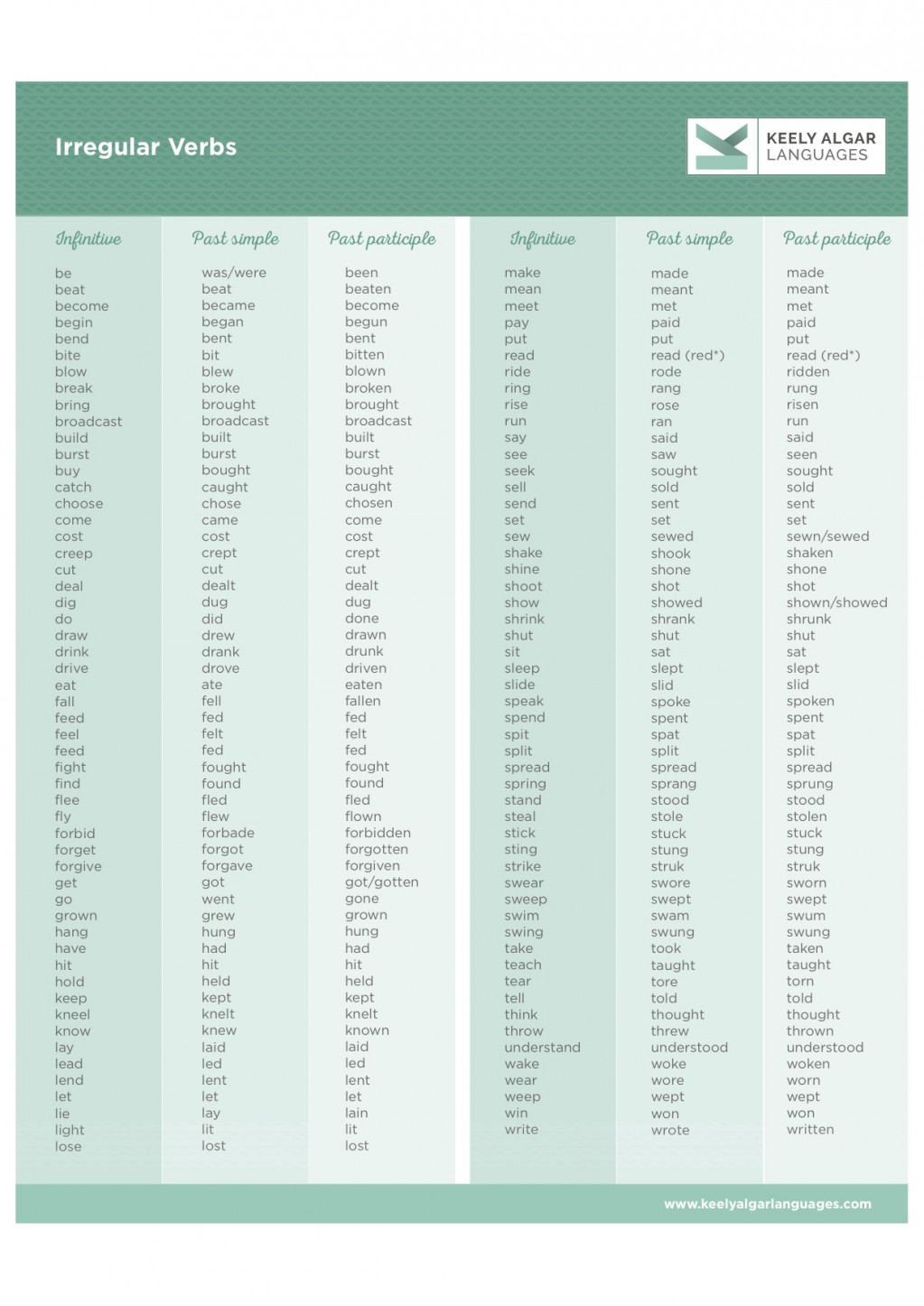

The top 4 are: verb, adverb, verbal noun and verb phrase. Here is an example of one as an adjective: The risen cake Read more about participles. Below is a massive list of present participle words - that is, words related to present participle. Here are some examples of how to use these conjunctions and prepositions before a participle clause: Before exercising, you should do a warm-up. Here is an example of one as an adjective: The rising tide Past Participles (usually ending '-ed,' '-d,' '-t,' '-en,' or '-n'). The most common ones we use are: before after instead of on since while when in spite of.

We are presenting you verb list in a easy to learn form. Participle clauses, especially those that use -ing, often come after conjunctions and prepositions. Here is a list of the 100 most common irregular French verbs in present tense that can help you take your learning to the next. Many verbs are irregular the past and perfect tenses are not controlled by strict patterns: Irregular Verbs. Proper use of verbs is very important to speak and write correct English.Verb (Base Form, Past Form, Past Participle Form, e/es/ies) followed by its ‘ing’ form. List of Irregular Verbs in English 199 Irregular Verb Forms

A participial phrase consists of a participle plus modifier (s), object (s), and/or complement (s). Here is a good list of irregular verbs for you to refer to.Learn Verbs || Learn Tenses || Learn Articles || Active & Passive Voice || Learn Auxiliaries || Common Errors in English Usage | Do you Know || Idioms || Parts of Speech A participle is a verbal ending in -ing (present) or -ed, -en, -d, -t, -n, or -ne (past) that functions as an adjective, modifying a noun or pronoun. The problem is that many verbs do not follow this rule. Rank, Base Form, Past Tense Form, Past Participle. Most English verbs take -ed for the past tense or past participle. There is another page showing the usual list of irregular verbs in English.


 0 kommentar(er)
0 kommentar(er)
